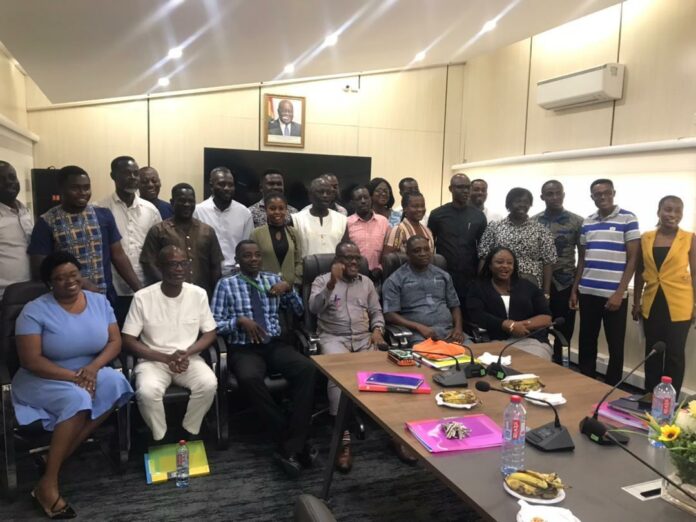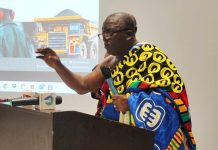
The Ministry of Employment and Labour Relations is urging the public to have a clear understanding of child work and child labour, as the latter has severe consequences on the wellbeing of children and the economy as well.
According to the ministry, child work is a practice performed by children below age 18, and it is not harmful to their health, wellbeing, welfare, leisure and education.
Whereas child labour is everything that denies the child of the listed benefits that prepare them for the future.
The Chief Director at the Ministry, Kizito Ballans, who said this, noted that though children learn critical skills and lessons from minor work that they perform as child work, the line between it and child labour is very thin.
He was addressing journalists at a day’s training on child labour and forced Labour for members of Social Mobilization Partners Against Child Labour in Accra last week Wednesday.
Mr. Ballans explained that depending on a child’s age, he or she must not work beyond four hours or carry loads beyond their strength and/or hazardous environment.
Hitherto, he said if issues of child labour are not handled carefully, they would affect the country’s economy, particularly the nation’s cash cow, cocoa.
The Chief Director’s challenge with child labour was about how major stakeholders are not appreciating the issues despite exposing the country to problems locally and internationally
According to him, because the public largely do not appreciate the issues of child labour, they either are in constant denial or blow the matter out of proportion.
“It is not everything that a child does is child labour,” he said.
The Head of the Child Labour Unit at the Ministry, Esther Ofori Agyemang, said Ghana was expected to eliminate all forms of child labour by the year 2025, to meet the Sustainable Development Goal.
While the clock is ticking, she advised the public, especially the media should be brought onboard to close the chapter on child labour for the good of the state.
She said this agenda can’t be achieved in a vacuum, therefore, a five-year Ghana Acceleration Action Plan Against Child Labour, a national plan of action for elimination of child labour has been launched.
The Action plan is expected to provide guidelines for the country from the year 2023 to 2027.
Mrs Agyemang added that the unit would be working with the various metropolitan, municipal and district, municipal and metropolitan assemblies (MMDAs) to implement the action plan, as well as adopt a reporting mechanism to track child and forced Labour issues in the country.
Facilitating the training, an officer from the Commission of Human Rights and Administrative Justice (CHRAJ), Mawuli Avutor, threw more light on the term – child labour.
He defined the term as a type of work that affects the child development, denies them from access to education, puts them at risk and affects their health and general well-being.
Mr Avutor agreed with the suggestion that child labour is a threat to national security because it denies children from accessing protection needed for their development.
The Deputy General Secretary of the General Agricultural Workers Union, Andrew A. Tagoe added that the members would ensure that child labour issues are prioritised to enable the ministry to achieve it vision.








